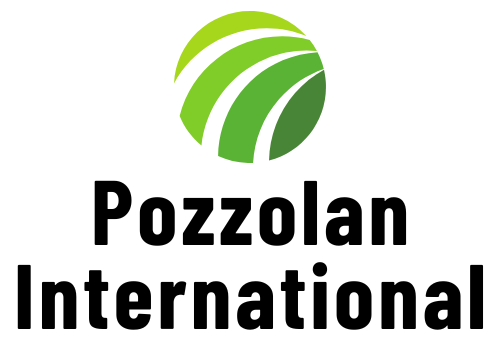Introduction to Pozzolanic International
Pozzolanic International is a company dedicated to connecting suppliers of pozzolanic materials with industries that can benefit from their use. With a focus on sustainability and performance enhancement, pozzolanic materials offer a range of advantages for construction and industrial products. In this article, we will explore what pozzolans are and the benefits they bring to various applications.
What are Pozzolans?
Pozzolans are materials, either siliceous or aluminosiliceous, that react with calcium hydroxide (a component of Portland cement) in the presence of moisture. This reaction leads to the formation of cementitious compounds, which contribute to the strength, durability, and sustainability of concrete and other industrial products. The use of pozzolans as supplementary materials in cementitious systems has been practiced for centuries, with historical examples of their use dating back to ancient Rome.
Benefits of Pozzolans
1. Reducing Carbon Emissions in Construction
One of the significant benefits of pozzolans is their ability to reduce carbon emissions in the construction industry. By incorporating pozzolanic materials into concrete mixes, the amount of Portland cement required can be reduced. As cement production is a significant source of carbon dioxide emissions, this reduction has a positive impact on the environment. Additionally, pozzolans often require lower energy inputs during their production compared to cement, further contributing to the overall carbon footprint reduction.
2. Improving the Strength and Durability of Concrete
Pozzolans play a crucial role in enhancing the strength and durability of concrete. When pozzolanic materials react with calcium hydroxide, they form additional cementitious compounds that fill in the gaps within the concrete matrix. This results in a denser and more compact structure, improving the overall strength and reducing the permeability of the concrete. As a result, concrete structures incorporating pozzolans exhibit increased resistance to cracking, chemical attacks, and other forms of deterioration.
3. Enhancing Self-Healing Properties of Concrete
Another advantage of pozzolans is their ability to enhance the self-healing properties of concrete. When cracks form in concrete, the presence of pozzolanic materials can facilitate the formation of calcium carbonate, which helps seal the cracks and prevent further damage. This self-healing mechanism can significantly extend the lifespan of concrete structures, reducing the need for costly repairs and maintenance.
4. Reducing Costs Associated with Cement and Maintenance
By incorporating pozzolans into concrete mixes, the amount of Portland cement required can be reduced. As pozzolans are often less expensive than cement, this can result in significant cost savings for construction projects. Additionally, the improved durability and resistance to deterioration offered by pozzolanic materials can reduce the need for frequent maintenance and repairs, further reducing long-term costs.In conclusion, pozzolanic materials offer a range of benefits for the construction and industrial sectors. From reducing carbon emissions and improving the strength and durability of concrete to enhancing self-healing properties and reducing costs, the use of pozzolans has a positive impact on both the performance and sustainability of various products. Pozzolanic International plays a vital role in connecting suppliers and industries, ensuring the widespread adoption and utilization of these versatile materials.
